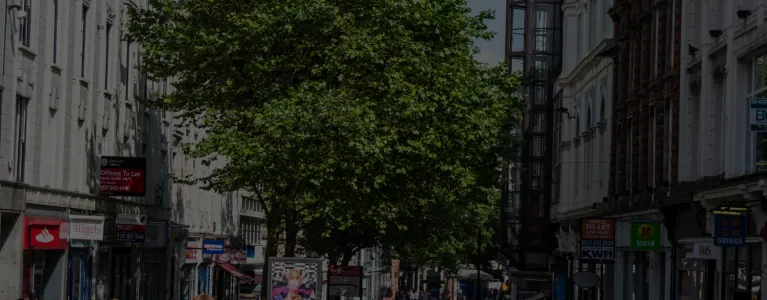
Put local communities at the heart of high street regeneration
The Mayor is being urged to provide financial and practical support to help put local communities and residents at the heart of high street regeneration, giving people a sense of ownership over their high street.
The London Assembly Economy, Culture and Skills Committee that has today published its report – At a crossroads: London’s high streets – which highlights the challenges and opportunities for London’s high streets to flourish.
The report finds that art, creativity, and heritage can also play transformative roles in high street revitalisation, with initiatives such as public art installations and cultural programming, making high streets more attractive places to spend time and enhance people’s connection to their local area.
The Committee heard that vacant units remain an issue for high streets. Temporary use of vacant properties on the high street have been a popular initiative that have helped bring a new lease of life to empty units through temporary occupation by businesses, community groups, or creatives.
Key recommendations in the report include:
- As part of his new High Streets Fund, the Mayor should support local community groups to take advantage of the new powers introduced by High Street Rental Auctions (HSRAs) to take over the leases of vacant units. This should include providing financial support to community groups to develop viable projects, to enable them to access vacant units as part of HSRAs.
- To help develop the unique character and heritage of each high street, the Mayor should develop an Art on the High Street programme that commissions public art installations, murals and interactive artworks on high streets in London.
- The Mayor should build on lessons from the Community Improvement Districts pilot to create an online engagement platform for local communities to have a say in high street regeneration projects in London.
- When delivering his new High Streets Fund, the Mayor should consider the feedback received by the Committee about the onerous nature of competitive bidding processes for high street projects. Where possible, he should work in collaboration with all London boroughs to identify the areas of greatest need when distributing funding.
Marina Ahmad AM, Chair of the London Assembly Economy, Culture and Skills Committee, said:
“High streets play a pivotal role in creating and maintaining a sense of community within boroughs here in London. From cafes and shops, to community centres and sports clubs, high streets provide essential services and support for Londoners.
“During our investigation, we heard how meaningful community engagement is one of the most important factors in ensuring a dynamic and revitalised high street.
“The Community Improvement Districts pilot - which provided a new approach for community stakeholders to have more say on the strategic direction of high streets – found that, through further work, they would help to mobilise local leadership and engage with communities in a way that other approaches have not.
“High streets are part of our community, so it is only right that communities play their part in reimagining high streets for local needs.
“Improving high streets will entice more people to spend money in their communities, helping to boost London’s economy and create spaces that are fit for purpose. We urge the Mayor to take on board our recommendations.”
Follow us @LondonAssembly.
Notes to editors
- Read the report in full.
- Marina Ahmad AM, Chair of the Economy, Culture and Skills Committee, is available for interview.
- Find out more about the work of the Economy, Culture and Skills Committee.
- As well as investigating issues that matter to Londoners, the London Assembly acts as a check and a balance on the Mayor.
For more information, please contact Tony Smyth in the Assembly Media Office on 07763 251727/ [email protected]. For out of hours media enquiries please call 020 7983 4000 and ask for the Assembly duty press officer.